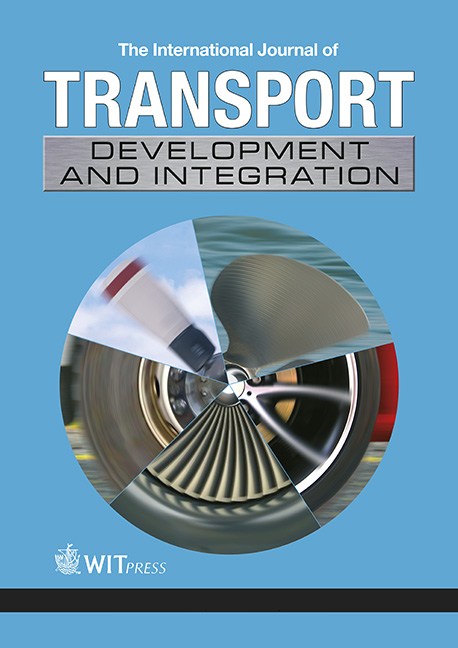Optimization System of Reserved/Non-Reserved Seating plans for Improving Convenience and Revenue of Intercity Express Trains
Price
Free (open access)
Volume
Volume 1 (2017), Issue 3
Pages
11
Page Range
359 - 370
Paper DOI
10.2495/TDI-V1-N3-359-370
Copyright
WIT Press
Author(s)
S. Nakagawa, M. Shibata, & N. Fukasawa
Abstract
In Japan, seating plans of reserved/non-reserved seats in intercity express trains do not necessarily correspond to passenger demands which may vary depending on many factors such as calendar days and operating sections. This mismatch possibly causes passengers’ inconvenience due to passenger congestions on board, and railway operators can lose revenue. Optimizing seating plans is expected to be an effective solution for these problems, where predicting both potential passenger demands and reflections to the potential demand caused by the passenger congestions is necessary.
For establishing the prediction methods, we conducted some demand analyses and some questionnaire surveys. according to these results, we establish demand estimation models of reserved/non-reserved seats which can consider potential demands and behaviour changes if the passengers face congestion. We developed a prototype of seating plans optimization system applying these models, simulation of passengers’ behaviour and genetic algorithm. This paper describes these models, the optimization system and the result of applying this system to some existing intercity express trains as a case study. We got the optimized seating plan which is expected to improve both of the passengers’ convenience and the railway operators’ revenue.
Keywords
congestion, genetic algorithm, intercity trains, potential demands estimation, revenue management, seat reservation, second best choice behaviour




